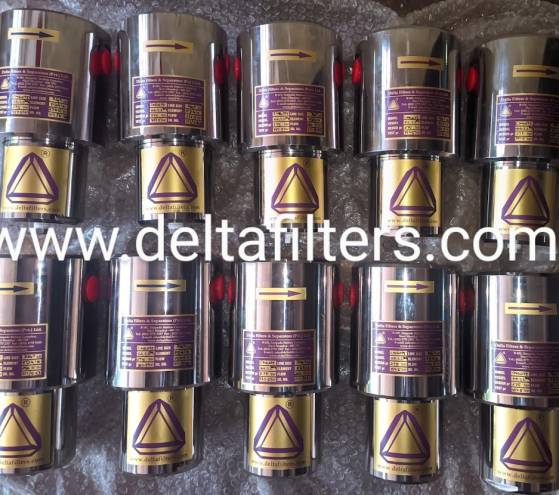Benefits of Regular CNG Filter Maintenance
Benefits of Regular CNG Filter Maintenance
Blog Article
Compressed Natural Gas (CNG) is playing a very important role in the development of clean energy alternatives. It is powering everything from public transportation systems to private fleets. As demand grows globally for environmentally-friendly fuel solutions, the infrastructure that delivers this gas must first and foremost be dependable, safe, and efficient. CNG compressors and dispensers are the key components in the fuel supply chain that ensure CNG is compressed and delivered with precision and purity.

Much emphasis is put on CNG compressors and dispensers, but not all components of these systems can deliver the desired performance without the filter, which is an integral part of the overall system. CNG filters, as the name implies, remove particulate matter, oil vapors, moisture, and other contaminants from the gas stream and maintain the integrity of the specific gas entering the system. Focusing on its maintenance is essential. Here are the benefits of regular CNG filter maintenance.
Improving System Efficiency
The regular upkeep of CNG filters greatly enhances the working efficiency of compressors and dispensers. Clogged contaminants restrict gas flow, resulting in loss of pressure; this exerts an extra load on the compressor, leading to tired (warm) motors. Extra work will increase energy consumption, prolong compression time, and create possible issues. Overall, fatigue is introduced into the whole system during prolonged use, resulting in complications. Longer refueling times for vehicles tend to lead to higher electricity costs.
Properly maintained filters allow gas to flow more easily through components, reducing motor strain. The compressor should operate more smoothly, requiring less energy to run; thus, maintaining output pressure consistently, and allowing for better performance for the system overall. For dispensers, properly maintained filters result in more even and cleaner gas delivery, both of which increase speeds and overall user satisfaction.
While operational gains increase company performance on a day-to-day basis, regular maintenance reduces energy consumption, waste, and environmental impact, making efficiency a lasting return on investment.
Prolonging the Lifespan of Equipment
Regular maintenance of CNG filters is one of the most cost-effective ways of extending the life of a compressor or dispenser. Oil aerosols, particulate matter, and water vapor are some of the contaminants that aggravate the wear and tear of internal components. When filters fail to remove impurities, they settle inside valves, seals, and sensor chambers, corroding surfaces and leading to mechanical failures. A small amount of contamination accumulates over time and can cause serious degradation that reduces the life of expensive components.
The filters that are consistently maintained can trap and eliminate contaminants before internal damage has occurred. The protective barrier keeps moving parts clean and better lubricated, thus reducing friction, corrosion, and the risk of breakdowns. Compressors and dispensers will stay in better shape for a longer time, requiring fewer major overhauls or replacements. In the long run, routine upkeep of filters will save thousands or tens of thousands of dollars on a CNG fueling system.
Less Risk of Expensive Downtime
Unplanned downtimes are the worst and most expensive for any CNG station. Be it a falling dispenser or a dying compressor, many people would have lost their customers or have to stop fueling, resulting in a loss of revenue. Worse, the emergency maintenance and part replacement costs almost always more than the scheduled upkeep expenses.
When filters are left unattended, contaminants quickly build up, leading to erratic performance and an eventual system failure. Pressure fluctuations, flow irregularities, and sensor failures can make machines shut down altogether or cut down their work capacity.
With regular maintenance of CNG Filters for compressors and dispensers, all failures will be avoided by treating contaminants before compromising the system. Also, inspections are conducted during filter changes, which will note other possible problems early enough to allow them to be fixed before the downtime. This way, operations are much smoother, modeled for predictability, and a business will not bear the financial burden of unexpected equipment outages.
Conclusion
Compressor and dispenser systems are key to the function, safety, and profitability of any given CNG station. The filters are the heart of this, and their efficiency is what keeps the systems safe. Regular maintenance is a very simple yet powerful investment that will secure the success of any CNG operation.
Report this page